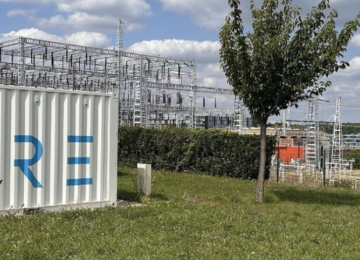House approves new energy law
On Tuesday, June 4, 2024, the new Energy Act was passed, an important step in the transition to a future-proof energy system. This law, supported by a broad majority, merges the 1998 Electricity Act and Gas Act. The law adds several aspects, including more transparency on the feed-in costs of solar panels and additional powers for grid operators.
Consumers better protected
One notable change in the new law is the clarification of solar feed-in tariffs. Consumers will now have more insight into the tariffs and conditions, contributing to a more transparent energy market. Consumers are also better protected against the consequences of bankruptcies of energy suppliers. Finally, a motion was approved by D66 to work out a multi-year phase-out path for the balancing scheme, instead of a hard stop in 2027.
More opportunities for energy storage
For the energy storage sector, the law contains important advances. For example, a definition of energy storage in the electricity system is added. This allows future storage measures to be more targeted.
In addition, rules around energy feed-in and costs will become clearer, making investments in energy storage more attractive to both consumers and businesses. The law also pushes for a reliable and flexible energy system, in which storage solutions play a crucial role in absorbing peaks and troughs in supply and demand.
Cable Pooling is also made possible in the new law. The conditions will be further elaborated in an Order in Council in the near future. Energy Storage NL is in discussion with members and the ACM about the right contracts for successful Cable Pooling projects. On May 30, we organized an informative webinar about this for ESNL members. The slides from that meeting can be found in the private member area.
Additional powers for grid operators
Finally, grid operators are given more opportunities to get started with storage. An adopted amendment by the GroenLinks-PvdA and the ChristenUnie parties allows grid managers to invest in storage themselves when necessary to provide congestion services. In addition, infrastructure companies are given the space to build, operate and provide generation and storage facilities on behalf of third parties. These could include energy communities, businesses or local governments.
Energy Storage NL believes that the market has a primary role in the rollout of storage. When realizing projects, it is important that a system can be deployed in different markets, so that maximum efficiency is achieved and social costs are limited. However, we do see an important role for grid operators to drive the development of storage, for example with flextenders or pilots.
In the coming period, the framework conditions for grid operators to invest in storage will be worked out in consultation with grid operators and the market. This should ensure that there will be no unfair competition between grid operators and companies. Under the new law, the ACM must ensure that developers and consumers are protected against this.
With the new law, an important step has been taken to remove barriers to the new energy system. This will make it easier to steer for flexibility in the system and put more effort into the realization of energy storage in electricity, heat and molecules. Energy Storage NL is committed to the rapid development of this market and remains in discussion with stakeholders such as EZK, the ACM and grid operators about the effects of the new law.
Questions or comments following this post? Please email to info@energystoragenl.nl
Latest News
 News
News
Energy Storage NL makes more work of local storage through renewed working groups
February 16, 2026 News
News
Raboresearch: Heat and cold storage becomes silent engine behind future-proof heat networks
February 11, 2026 Member News
Member News


